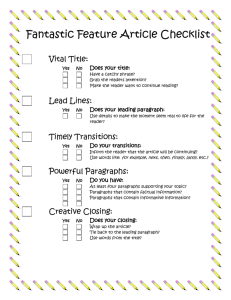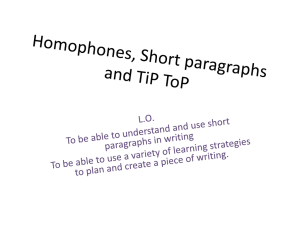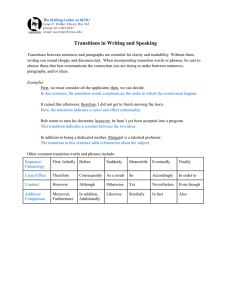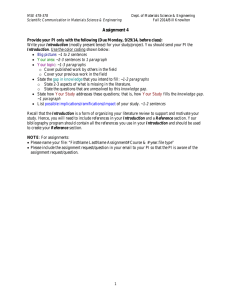Language, Philosophy, and Culture
advertisement
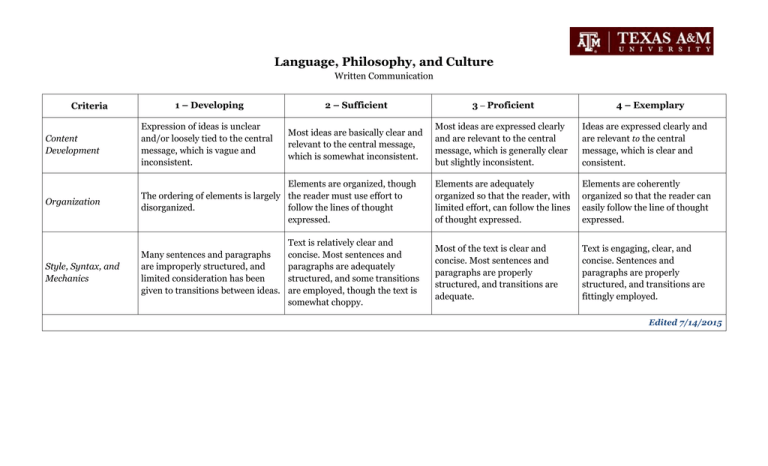
Language, Philosophy, and Culture Written Communication 1 – Developing 2 – Sufficient 3 ‒ Proficient Content Development Expression of ideas is unclear and/or loosely tied to the central message, which is vague and inconsistent. Most ideas are basically clear and relevant to the central message, which is somewhat inconsistent. Most ideas are expressed clearly and are relevant to the central message, which is generally clear but slightly inconsistent. Ideas are expressed clearly and are relevant to the central message, which is clear and consistent. Organization Elements are organized, though The ordering of elements is largely the reader must use effort to disorganized. follow the lines of thought expressed. Elements are adequately organized so that the reader, with limited effort, can follow the lines of thought expressed. Elements are coherently organized so that the reader can easily follow the line of thought expressed. Style, Syntax, and Mechanics Text is relatively clear and Many sentences and paragraphs concise. Most sentences and are improperly structured, and paragraphs are adequately limited consideration has been structured, and some transitions given to transitions between ideas. are employed, though the text is somewhat choppy. Most of the text is clear and concise. Most sentences and paragraphs are properly structured, and transitions are adequate. Text is engaging, clear, and concise. Sentences and paragraphs are properly structured, and transitions are fittingly employed. Criteria 4 – Exemplary Edited 7/14/2015 Language, Philosophy, and Culture Courses in this category focus on how ideas, values, beliefs, and other aspects of culture express and affect human experience. Courses involve the exploration of ideas that foster aesthetic and intellectual creation in order to understand the human condition across cultures. Core Objectives Critical Thinking Skills: To include creative thinking, innovation, inquiry, and analysis, evaluation and synthesis of information Communication Skills: To include effective development, interpretation and expression of ideas through written, oral and visual communication Personal Responsibility: To include the ability to connect choices, actions and consequences to ethical decision-making Social Responsibility: To include intercultural competence, knowledge of civic responsibility, and the ability to engage effectively in regional, national, and global communities
